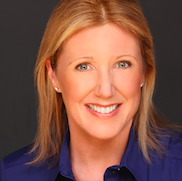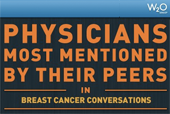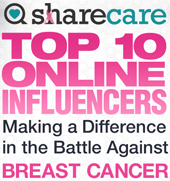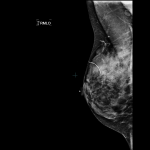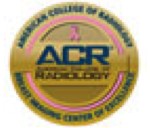The Breast Diaries
Stacey is also a guest blogger at KevinMD.com. Check out her latest post here!
Response to NY Times article: Mammogram’s Role as Savior Is Tested
November 2nd, 2011Tara Parker-Pope’s recent article in the New York Times Science Section discounts the role of mammography as an essential tool in the quest to save women from premature death due to breast cancer. She reports on the conclusion drawn by researchers Welch and Frankel from Dartmouth, who published a statistical analysis using epidemiologic data and computer software in this article in Archives of Internal Medicine this month. Their conclusion: “Most women with screen-detected breast cancer have not had their life saved by screening. They are instead either…
Read More8 Things You Can Do TODAY to Lower Your Risk of Advanced Breast Cancer
October 29th, 2011Breast Cancer Awareness Month ends on Monday. Of course awareness is important, but knowing what specific actions you can take to protect yourself against the disease is empowering. Breast cancer can strike anyone, with or without risk factors. However, there are several things you can do NOW to lessen the likelihood of advanced breast cancer happening to you.
1. Lace up and take a walk! According to the Women’s Health Initiative study, women who walked just 30 minutes per day at least 5 days a week (exercise pace, not a leisurely stroll) decreased their breast…
Read MoreBreast Density Advocates on Good Morning America
October 13th, 2011Nancy Cappello, PhD and JoAnn Pushkin were interviewed on Good Morning America last week, talking about their experiences as women doing “everything right”: mammograms every year, healthy lifestyle, annual checkups. Yet even though they were good, compliant patients, they both were diagnosed with advanced breast cancers. How did this happen? Well, they were never informed that they have dense breast tissue, which confers an increased risk for breast cancer, AND makes a mammogram so hard to read that up to half of cancers won’t be seen.
Since they were given “normal”…
Read MoreChristina Applegate Foundation Gives Direct Financial Aid for Breast MRI
October 6th, 2011In 2009, the year after she was diagnosed with breast cancer at age 36 after a screening Breast MRI test, actress Christina Applegate founded Right Action for Women (www.rightactionforwomen.org), a foundation dedicated to educating women about what it means to be at “high risk” for breast cancer.
In addition to education, the foundation offers financial assistance for women 45 years old and younger, with a family history of breast cancer or with a positive BRCA gene test, to gain access to Breast MRI, regardless of insurance status. Insurance companies often …
Read MoreWhen Should I Have My First Mammogram?
October 4th, 2011General Guidelines
For most women, age 40 should be when you start having yearly mammograms in order to minimize your likelihood of developing advanced breast cancer (“Government Mammography Task Force vs. You”). Some doctors send their patients for a baseline mammogram at age 35, and I wouldn’t argue with that.
Family History
If you have a strong family history of breast cancer (mother or sister), start having your mammogram 10 years younger than the age that relative was diagnosed, OR at age 40, whichever is younger. For example, if your sister had breast cancer…
Read MoreGovernment Mammography Task Force Vs. You
September 26th, 2011Top 9 Reasons Why the Government Panel Recommendations on Mammography are Bad for Your Health
If the 2009 USPSTF (U.S. Preventive Services Task Force) recommendations are followed, as many as 20% of breast cancer deaths will be in women who could have been saved. The USPSTF knew this when they issued their report.
1. The Task Force’s own data shows that the most lives are saved by starting mammography screening at age 40, but they chose to ignore that data. They made a value judgment as to how much a woman’s life is worth. The science clearly shows that starting annual …
Read MorePersistent Patient Prevails Against Insurance Company
September 26th, 2011This 49-year-old woman had cancer in her left breast a few years ago, and was treated with a left lumpectomy and radiation therapy. Worried that the cancer would come back and be found too late in her dense breasts, she’d heard about breast MRI in her survivors’ support group, and decided to ask her doctor to send her for one. Her doctor agreed, and gave her a prescription for the test. But her insurance company didn’t approve it, even though her doctor ordered it.
The insurance clerk she spoke with after she was notified of the denial told her she didn’t need to have the MRI…
Read MoreHow Do I Know If I’m High Risk?
September 16th, 2011If any of the following risk factors apply to you, you might be at high risk. Talk to your doctor:
- Do you have a family history of breast cancer (both your mother and your father’s sides count!)? The highest risk is if you have a mother, sister, daughter, father, brother or son with breast cancer. But other relatives– grandparents, aunts, cousins– are important to consider as well.
- Have you had breast cancer yourself in the past? If so, you have 10x the risk of the average woman for developing a new cancer.
- Do you have dense breasts? (“What Breast Density
Case Example: Self-Examination Saved Her
September 16th, 2011As follow-up to my last post regarding breast self-examination, I offer a real case example:
A 39-year-old mom with no family history of breast cancer felt a lump in her right breast when she was doing a self-examination. Her mammogram pictures show dense breast tissue. A triangular-shaped sticker (you can see the triangle on the RMLO and RCC films) has been put on the lump. At that site on the mammogram, there is an irregular mass best seen on the magnified view RMML (yellow arrow) that demonstrates “spiculated margins”- a radiology term for badness. The mass…
Read MoreDon’t Be Shy
September 16th, 2011Breast self-examination (BSE) is one of our key weapons in the arsenal to detect breast cancer as early as possible. It only takes a few minutes a month, yet a woman can potentially save her own life by taking the time to do it. For reasons that have nothing to do with science or common sense, the government panel known as the U.S. Preventive Services Task Force, which did not include even one doctor specializing in breast cancer as a panelist, recommends AGAINST women doing self-examinations. See my take on this HERE.
BSE is especially important if you are younger…
Read More
